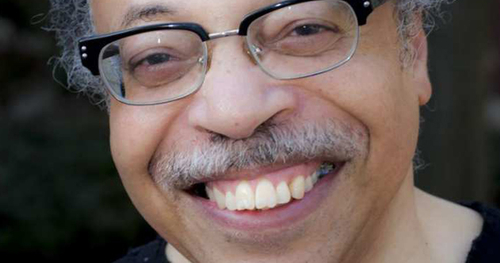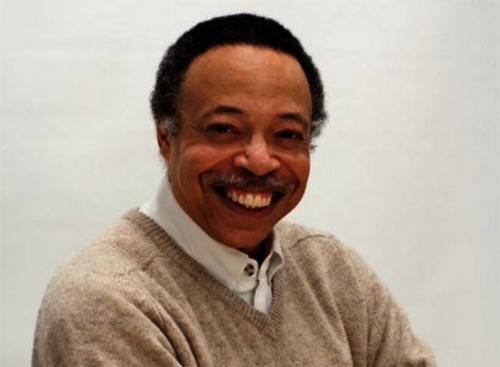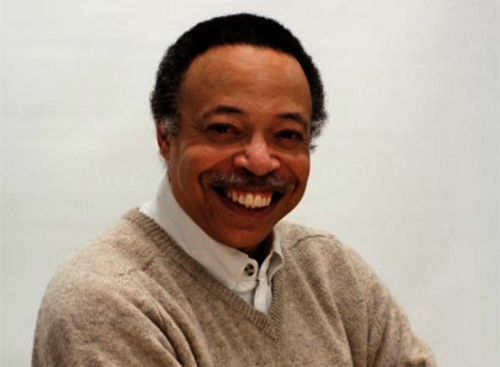To read the article, click here .

Faith makes way into nation’s 150th
January 14, 2017

Convivium Settles into New Online Home
CONVIVIUM SETTLES INTO NEW ONLINE HOME Magazine moves forward with new digital presence as premier hub for faith in our common life December 20, 2016 HAMILTON – Convivium is starting a new chapter in its life today as a digital media outlet. The great Convivium content readers have enjoyed is now freely available on a new website: www.convivium.ca. Aside from a great new look, we’ve made several other improvements to Convivium’s digital home:Our latest article will always be right at the top of the website The latest columns from Fr. Raymond de Souza and Peter Stockland now get front page treatment on Convivium Convivium is now the go-to place for articles and commentary from Cardus program directors, taking over the role of the Cardus Blog Looking for some of Convivium’s past content? Scroll down to find six featured articles you may have missed Convivium now offers access to the Thread of 1,000 Stories – a medley of stories about the role faith plays in daily Canadian life Convivium is now a new online spot to pause and reflect with its Sacred Spaces feature – a constantly updated collection of images that inspire thought and prayerConvivium print subscribers will receive a special 'best of' print edition of the magazine by mail in January to mark our transition from a print to a digital outlet. Convivium will continue to be a voice for the rightful role of faith and for people of faith in our pluralistic society. Won’t you join in by following Convivium on Facebook and Twitter, by subscribing to our free newsletter, by telling your friends about us, and by donating to the cause?-30- About Cardus Cardus is a think tank dedicated to the renewal of North American social architecture. It conducts independent and original research, produces several periodicals, and regularly stages events with Senior Fellows and interested constituents across Canada and the U.S. To learn more, visit: www.cardus.ca and follow us on Twitter @cardusca. MEDIA INQUIRIES Daniel Proussalidis Cardus - Director of Communications 613.241.4500 x.508 dproussalidis@cardus.ca
December 20, 2016

Why we can’t afford to take charities for granted
December 5, 2016

Why we can’t afford to take charities for granted
December 5, 2016

We can’t afford to take charities for granted
December 3, 2016

Can $25,000 prize draw out the ‘divine’ in Canlit?
November 30, 2016

New $25K Canadian literary prize focuses on religious faith
A new literary prize is awarding $25,000 to short story and poetry writers who focus on the theme of religious faith in Canada. The Ross and Davis Mitchell Prize for Faith and Writing will be awarded every other year beginning in 2017 to original, unpublished poetry and short stories. The prize is founded by the think tank Cardus, "dedicated to the renewal of North American social architecture." First-place winners in each of the two categories will win $10,000, while $2,500 will go to two runners-up - one for poetry, one for short stories. According to the prize's project lead, Doug Sikkema, the prize seeks to encourage "the diverse writers of faith in Canada." "The prize is meant to show a real picture of the joys and struggles, the pleasures and the pains, of what being religious in Canada entails," Sikkema says. Parliamentary poet laureate George Elliott Clarke will judge the poetry category of the inaugural Ross and Davis Mitchell Prize for Faith and Writing, along with U.K.-based British-Canadian poet Todd Swift and Deborah Bowen, chair of the English department at Redeemer University College in Ancaster, Ont. The short story category will be judged by PEN Canada president Randy Boyagoda; literary critic, professor and writer David Staines; and novelist and psychotherapist Susan Lynn Reynolds. The deadline for the prize is June 30, 2017, with winners announced in the fall. Shortlisted writers for the prize will have their work published in an anthology to be published in 2018.
November 22, 2016

New national prize awards $25,000 for faith in literature
North American think tank Cardus‚ as part of its Faith in Canada 150 initiative‚ has launched a new national literary award recognizing authors who take on themes and elements of faith in their writing. The Ross and Davis Mitchell Prize for Faith and Writing will award $25,000 to writers of poetry and short stories‚ with $10,000 going to a first-place winner and $2,500 to a second-place winner in each category. Shortlisters will also have their work published in a special anthology‚ to appear in 2018. The prize will be administered every other year‚ and will only accept original‚ unpublished work to “catalyze the new generation of such writers‚” according the prize’s project lead‚ Doug Sikkema. “Consultation with publishers and literary groups has confirmed our suspicion that more can be done to help the diverse writers of faith in Canada‚” Sikkema says. “The prize is meant to show a real picture of the joys and struggles, the pleasures and the pains, of what being religious in Canada entails.” The poetry prize will be judged by parliamentary poet laureate George Elliott Clarke‚ University of Cambridge writer-in-residence Todd Swift‚ and Redeemer University College English professor Deborah Bowen‚ while the short-story prize will be judged by Randy Boyagoda, PEN Canada president and St. Michael’s College principal and vice-president‚ novelist and poet Susan Lynn Reynolds‚ and Journal of Canadian Poetry editor and University of Ottawa English professor David Staines. The submission deadline is June 30‚ 2017. A prize gala will take place in the fall.
November 21, 2016

End-of-life care requires communities to mobilize
Ottawa will be ground-zero this week for a major conference aiming to hammer out a consensus on palliative care. With physician-assisted death now law, issues around patient, doctor and institutional rights remain far from resolved. Canada’s aging population is creating a sense of urgency concerning end-of-life care within a strained medical system. And the October meeting between the provinces and the federal government over health transfers only aggravated tensions over funding levels and spending on specific services, such as home care. Clearly, whatever comes out of this conference, we all need to be part of the conversation about how to mobilize communities to care both for the aging and dying, and for their natural caregivers. While the health-care system is an integral part of aging and dying, end-of-life care is not only a medical issue. In fact, natural caregivers such as family, neighbours and friends are shouldering a significant burden, with 46 per cent of Canadians reporting to Statistics Canada that they have cared for a friend or family member with long-term health, age or disability issues. Among Canada’s natural caregivers, about 28 per cent have tended to terminally ill care recipients. Even so, Canada is slipping in its global ranking on end-of-life care. The Economist’s Quality of Death Index ranked Canada ninth in 2010, but our country slipped to 11th last year. Canada holds 18th place on the index’s measure of palliative and health care environments. Clearly, there is a need for new thinking. University of Bradford sociologist Allan Kellehear observes that there has been a growing disconnect between family members on the one hand, and extended family and community networks on the other. This has resulted in increased reliance on the health-care system, and the isolation of natural caregivers and their care recipients. Kellehear argues that the current state of end-of-life care is simply unsustainable. Reversing course seems like a herculean task, yet ingenuity tends to originate locally where people are developing what Kellehear calls compassionate care communities. Consider Severn Hospice in Shropshire in the United Kingdom. Faced with the possibility of a flu pandemic a decade ago, the hospice began recruiting and training volunteers to reinforce paid staff. As a result, Severn Hospice had a core of trained and motivated community members when, a couple of years later, the local health authority approached the hospice with a pilot project to address social isolation. Rather than creating yet another program, the pilot project focused on building a community of care. Family physicians identified elderly patients who would benefit from greater community inclusion. Volunteers were paired with patients, visiting and doing light care work as frequently as was suitable for both parties. Volunteers were encouraged to monitor changes in health and share any concerns to a volunteer co-ordinator. The purpose of the project was to confront social isolation, but follow-up evaluations found added benefits. Unplanned visits and phone calls to physicians were reduced, and there were fewer unplanned visits and admission to the ER among the target population. By 2014, Severn Hospice had recruited approximately 1,000 volunteers with about 350 paid staff, all serving a community of about 500,000 residents. The Severn Hospice initiative has equipped volunteers who are embedded in their own natural social networks. This serves to elevate the conversation around aging and end-of-life issues. Palliative care is a vital movement in Canada that deserves the attention of the Nov. 7 conference. The event follow-up report to be produced by the Conference Board of Canada will undoubtedly raise critical issues. Those efforts can only be enhanced by the mobilization of compassionate communities, where the vision for end-of-life care extends beyond the walls of medical facilities.
November 6, 2016
